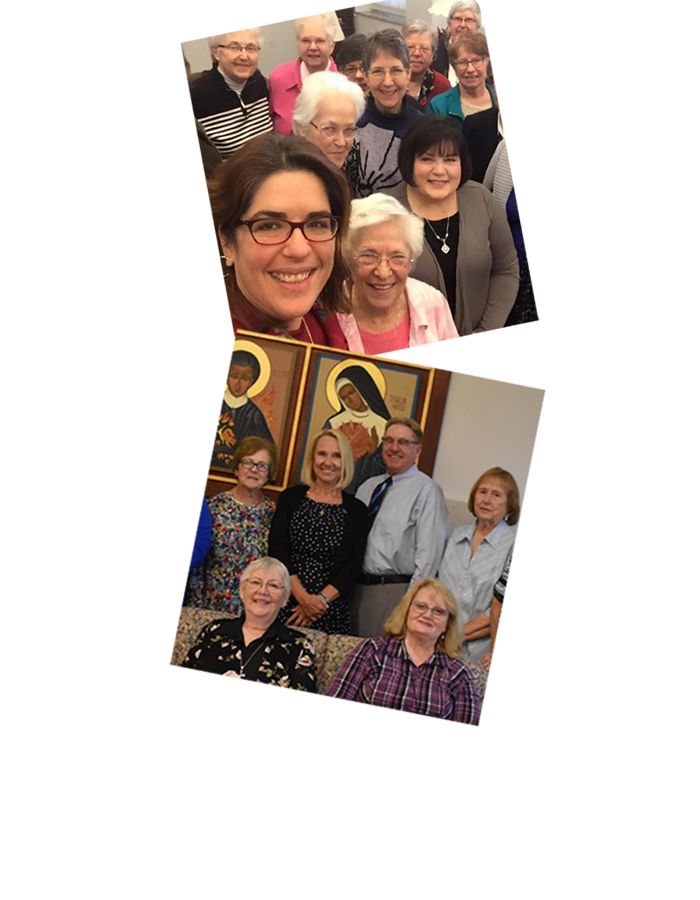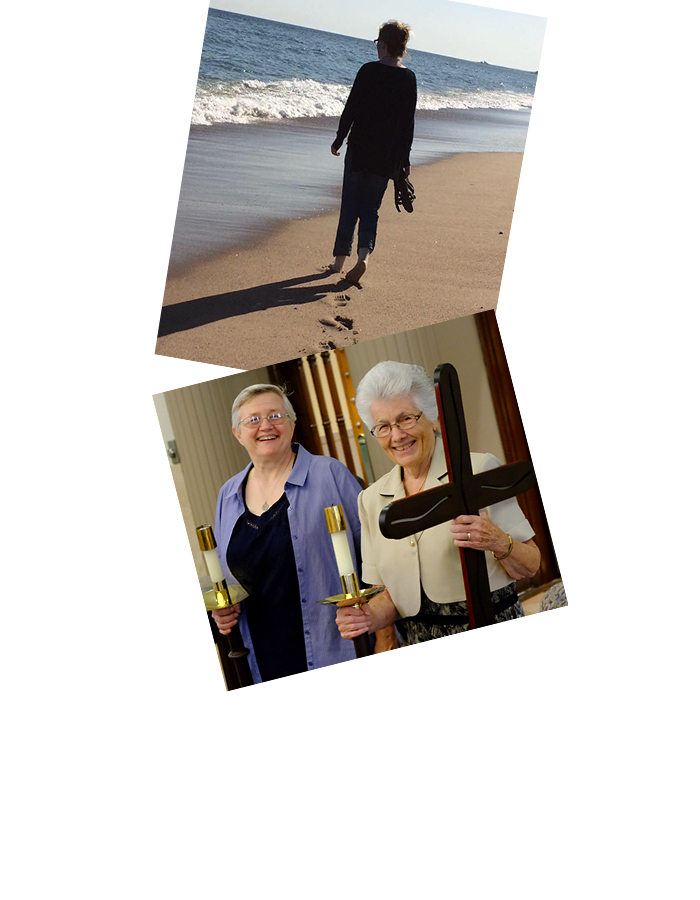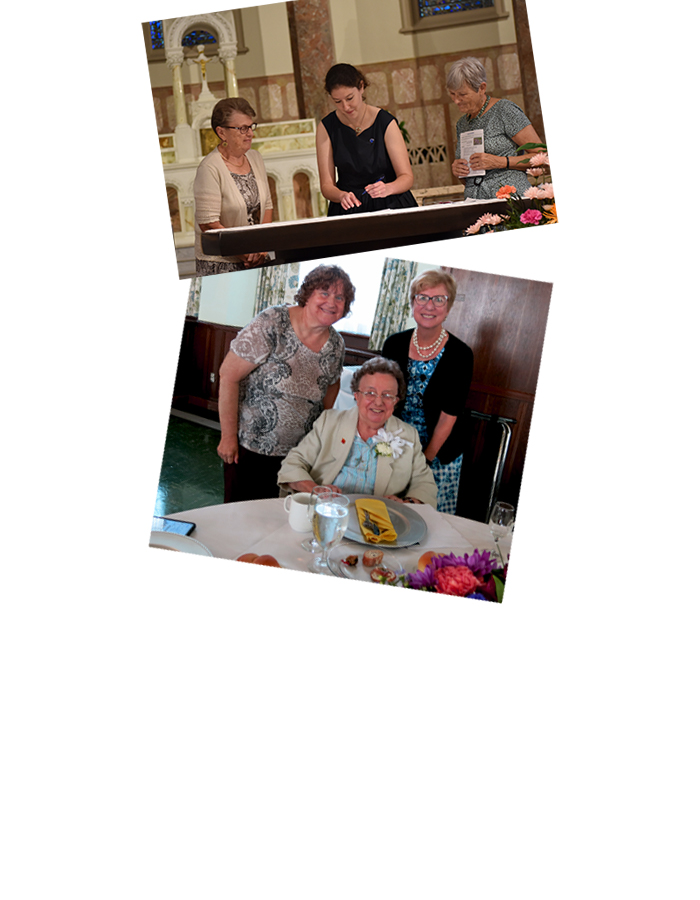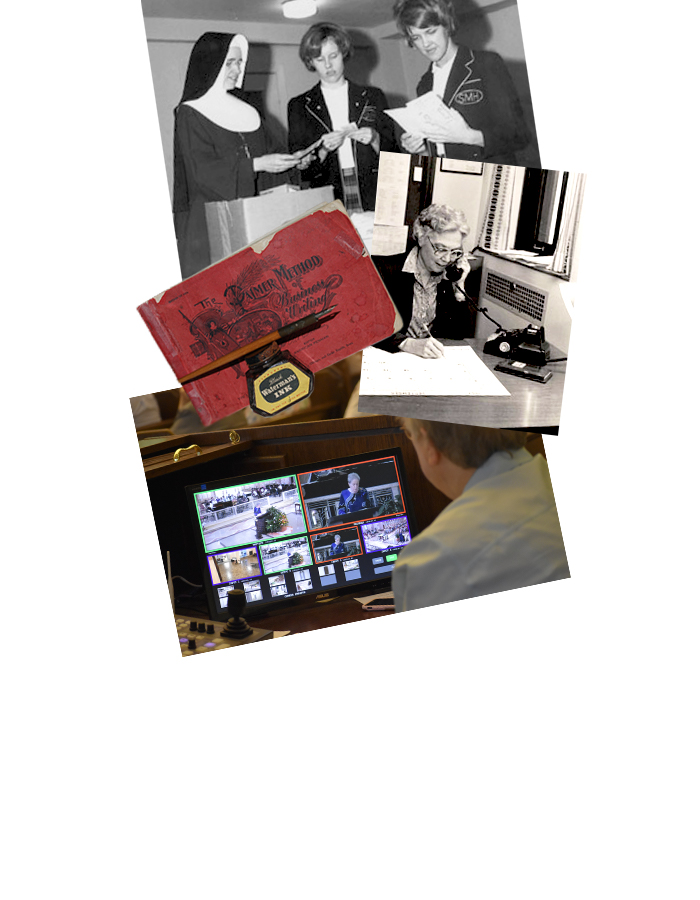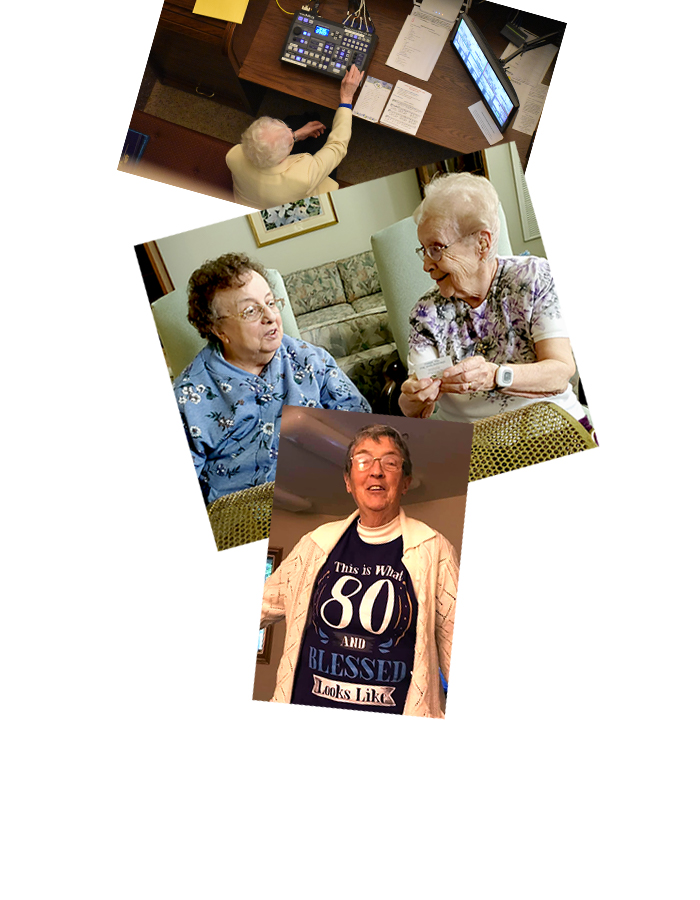Thursday, Oct. 16, 2025
For many years, this dinner took place at the Detroit Athletic Club (DAC). As a proud member of the DAC, I was initially excited at the idea of keeping that tradition alive. But after a little reflection, it seemed to me that Marygrove was where we needed to be tonight, and just not Marygrove but this room specifically, named in honor of Mother Maxis herself.
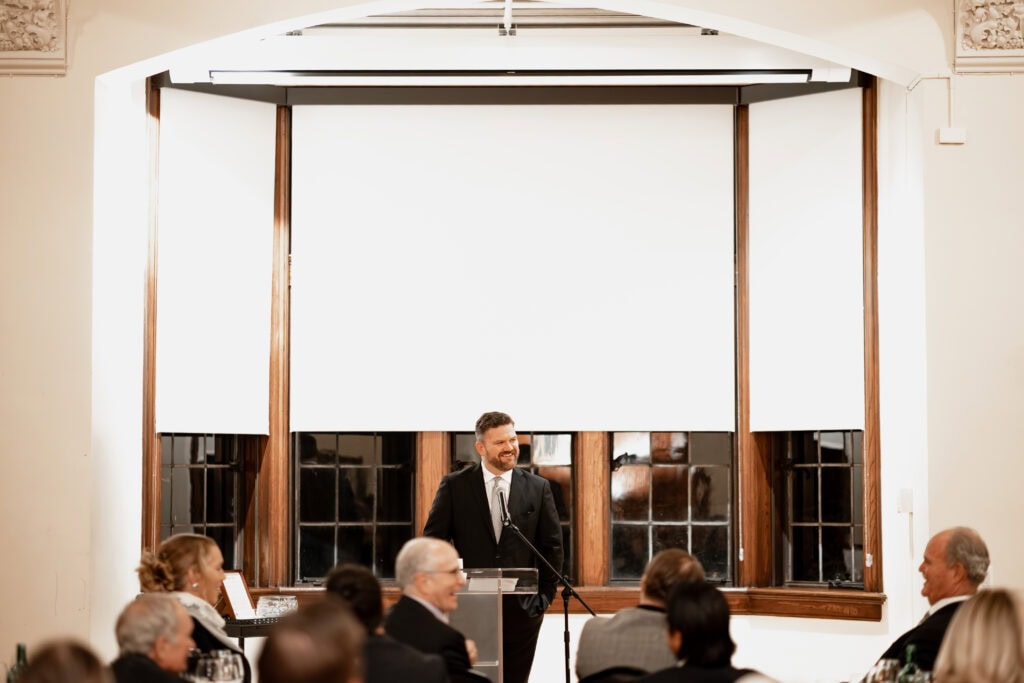
My family has incredibly deep roots and history on this campus, and I’m beyond grateful to Marilyn Meadows and the entire IHM leadership and development teams for their willingness to grant my request to be here tonight. And obviously, I want to thank all of you – some 200 friends and family – for taking the time to be here tonight. Even for a healthy ego like mine, this is a bit overwhelming. By the way – as a sign of my gratitude, and in memory of Sr. Marietta Murphy, one of my all-time favorite Irish nuns, please remember to take your Paddy Punchcard, which entitles you to a free Schvitz, a dozen donuts and a pitcher of beer. Not bad … I was going to add 10% off your next funeral but that seemed a little on the nose.
So, when the nuns call you or email you, it usually means one of two things: either you’re in big ass trouble or it’s time to raise some money. I’m very grateful it was the latter and that with your generosity, tonight’s dinner brought in nearly $100,000. To share this evening with the IHMs and celebrate their ongoing ministry is so awesome for me and I’d ask that all those IHMs present here tonight, please stand and be recognized.
It’s no secret now that Mother Maxis was the daughter of a Haitian refugee and that she struggled deeply with the racism and patriarchal power that were present throughout much of her life. Sadly, many of her bishops, if not most, did not share her charism or vision, and in this way, she’s always put me in mind of one of my 20th-century heroes, the servant of God, Dorothy Day.
I’ve always found a charming and insightful passage from a letter Dorothy wrote to a fellow activist in the late 1960s:
“As a convert, I never expected much from the bishops. In all of history, popes and bishops and father abbots, seem to have been blind and power loving and greedy. I never expected leadership from them. It is the saints that keep appearing all through history who keep things going. What I do expect is the bread of life. And down through the ages, there is that continuity. The gospel is hard. Loving your enemies is hard, and the worst are of our own household. If I had a dollar for every person who, after meeting me, getting to know me, learning a bit about my politics and beliefs, et cetera, was surprised to learn that, not only am I Catholic, but that I continue to actively name myself as such, I’d be, perhaps, not rich, but I’d have at least quite a few dollars.”
Dorothy’s right, of course. The gospel is very hard, especially when you stop arguing politics with your friends and family (or bishops) and instead begin to focus on the problems and the pain of the here and now. In another letter, Dorothy quips, “Everyone wants to save the world but no one wants to do the dishes.”
The Gospel is hard, and of course, not one of us is capable of fulfilling all of its demands. When I consider the works of mercy (feed the hungry, shelter the homeless, visit the prisoners, instruct the ignorant, and the list goes on and on and on) – I think to myself, who could possibly do all of these things? I mean, is it not hard enough to keep a job and brush one’s teeth?
But this is precisely where the weakness and inadequacies of our own little lives are transformed into a profound mystery. I must confess, for example, that I have spent very little time visiting the sick, the housebound, the elderly, but I know that Sister Margaret Chapman has dedicated much of her life to doing just that. And I must confess that I have done nearly nothing to defend and welcome the immigrant as Christ demands of me, but I know for a fact that Sister Gloria Rivera has demanded that work of herself time and time again. I must confess that I have not spent any time visiting the incarcerated, but I know that my friends Jay Elias & Fr. Tom Lumpkin continue to do so. In my 20s, I taught catechism but then life got too busy and I no longer do much teaching at all, but I know that so many in this room – Randy Engle, Thane Hall, Mike Khoury, John Zenz, Dave and Heather Sofran, too many Callaghans to mention, Sister Theresa Koernke and countless other IHMs – have dedicated their lives to the education of others, and so often the vulnerable and the poor who need it most. On our own, we are very little indeed, but collectively, we are a great cloud of witnesses; one body, one spirit, and as St. Paul reminds us, the love between us covers a multitude of sins.
For my part, I have spent most of my adult life burying the dead, which is, of course, the final corporal work of mercy. And the longer I do it, the more grateful I become. To many, it would appear burdensome, and in the early years, it was at times very difficult for me, both spiritually and psychologically. But to be with people at their most vulnerable, their most fragile, and to be given the opportunity to put all differences aside and treat them kindly and lovingly and straightforwardly – it’s difficult to articulate how much that has meant to me and how much I believe it’s made me into the person I am today. My life and work feel inseparable, which to me is a gift.
Over the last several years, I’ve also managed to take on many other projects outside of funeral service. I call it a fetish for money pits. Nhu calls them depreciating assets. It’s truly a miracle she married me. She could still be dating multiple men in Manhattan but here she is, stuck with me. Nhu – please stand up so we can give you another round of applause.
It’s true, we have a lot on our plates. And as time goes on, I get the question more and more: How do you do it? How do you juggle so many things? And the truth is, I don’t. It’s 100 percent a team effort.
When I lived in Haiti, I came to appreciate a saying the Haitians use often (perhaps Mother Maxis knew it): Men anpil chay pa lou, which is Creole for “Many hands lighten the load.” Without my family and coworkers at the funeral homes and the dedicated teams at the Schvitz, the convent, the healing center, Dutch Girl and Dakota, I would never ever ever be able to pursue so many projects. I’m beyond grateful and I’d ask that all my colleagues and coworkers please stand and be recognized.
I want to conclude with a brief story and a small word of encouragement. Since I can remember, all the way back to my days as a little altar boy at Holy Name, I was intrigued by this central but mysterious figure, Jesus of Nazareth. And by the time I graduated from Brother Rice, I could tell that no matter my path forward he would always remain a source of interest and reflection in my life. But then, encountering the Jesuits at Boston College, and all the various ways they engage with the world, my mind was totally blown open by the political and spiritual ramifications of a divine drama that would dare to subvert the collusion of religious power and state violence. By the time I graduated from BC, I wasn’t just intrigued by Christ. I was captivated.
But I’ll be honest, my prayer life has never been consistent and over the years, very rarely have I felt a real intimacy with Christ. In fact, during some of the hardest moments of my life, he has felt surprisingly distant, and I’ve wondered before if that’s not perhaps by design, that perhaps he’s trying to teach me something, or push me to the margins by making me search for him in new and different places.
When I first came home from Haiti as a young man, and I couldn’t properly process what I’d been through, I remember thinking, he’s hiding from me, and I don’t know when he’ll return. Likewise, when 16-year-old Cullen Haffey killed himself without warning, and the entire Brother Rice community was left in total shock and devastation, I remember looking at Cullen’s face just before I started putting his body back together. I felt this enormous sense of loss and abandonment. Even today, when I see immigrant families being torn apart and war crimes committed on live TV, I find myself asking – where are you, Lord? Why have you abandoned us?
But then I try to pause and take time to contemplate his own passion, that strange moment of mitosis when God manages to divide and abandon himself for our sake. And there at the foot of our salvation, I see time and time again, an image that has never felt distant or hidden or aloof in any way. And that is the image of the immaculate heart of Mary – our life, our sweetness and our hope. The mother of sorrows and the queen of all saints. And in her heart, I have always found peace.
And so, if, like me, you struggle to find God in these most difficult times, I encourage you, like the sisters in this room, to seek out and serve the immaculate heart of Mary. She will avail herself to you and wherever she is, we know that the Lord’s appearance is not far behind.
My love and gratitude to all of you.
Many hands lighten the load.
Thank you. Thank you. Thank you.
